#new zealand poetry
Text
In Bloom
You were the spring
a n d
I was the flower in bloom
Joel Lester // Hymns, Proverbs, Poems, and Prophecy.
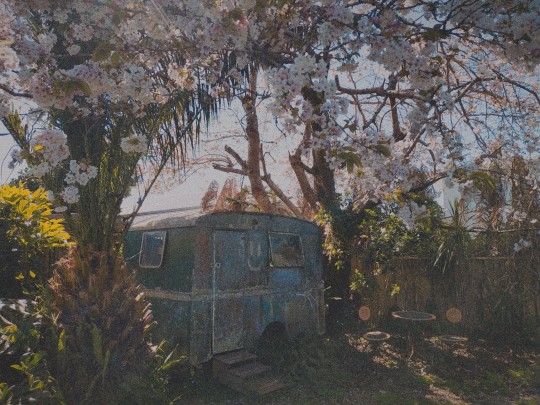
#poem#poetry#oc poetry#original poem#original writing#poetic#creative writing#writing#writblr#spilled ink#spilled poetry#words#text#new zealand poetry#poets on tumblr#poems and poetry#photography#naturecore#flowercore#flowers
18 notes
·
View notes
Text
no matter where
you bury me
no matter where
I fall
I will find my way
to water
I will find my way
home
Marewa Glover, Pounamu
#Marewa Glover#Pounamu#Puna Wai Korero#bury me#water#home#death#death quotes#Maori poetry#Maori literature#New Zealand poetry#New Zealand literature#poetry#poetry quotes#quotes#quotes blog#literary quotes#literature quotes#literature#book quotes
18 notes
·
View notes
Text
A poem by Erik Kennedy

Another Beautiful Day Indoors
The light lengthens on the carpet,
a sure symptom of afternoon.
I haven't left the house today
because there's only one reason
to do that, and I've already got goat cheese.
A half moon is only a quarter of the moon.
This sky should win trophies.
I look at other people, their energy,
and think they must have been raised by marmots.
I know for the sake of social cohesion
we must try to live togetherly,
like Bronze Age women and men,
but it's been a long week, and, anyway,
petrol prices have gone up again.
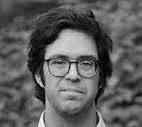
Erik Kennedy
Listen to Erik Kennedy read his poem
This poem originally appeared in The Moth, No. 35, Winter 2018
More poems by Erik Kennedy are available on the Iamb poets site
2 notes
·
View notes
Text
East River // Lola Ridge
Dour river
Jaded with monotony of lights
Diving off mast heads....
Lights mad with creating in a river... turning its sullen back...
Heave up, river...
Vomit back into the darkness your spawn of light....
The night will gut what you give her.
#poetry#Lola Ridge#American poetry#East River#New Zealand poetry#New York City#New York poems#river#night#micropoetry
2 notes
·
View notes
Text
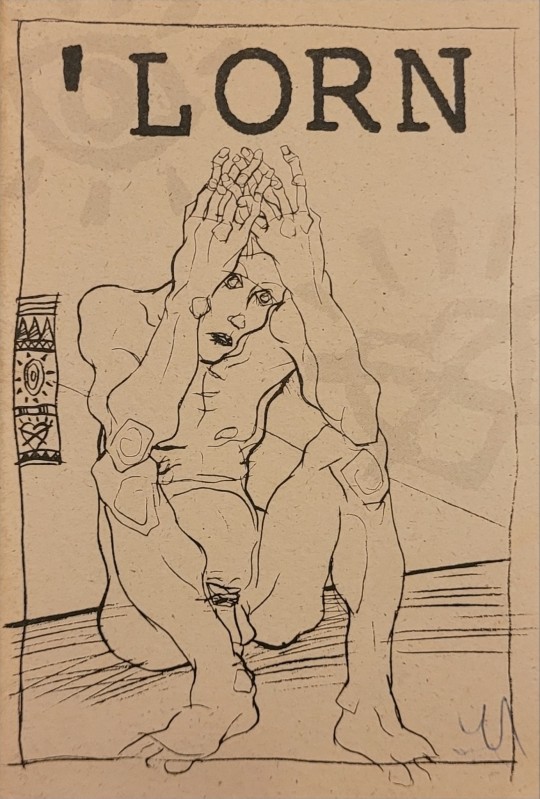



four chapbooks of poetry: the first 3 are written and illustrated by dean tercel, and '10 minutes from the well' is written by stan scott and illustrated by dean tercel.
#both were friends of my dad's nd i think there were probably quite limited pressings :')#but a few have some cool little notes from the authors in em#poetry#chapbook#poetry chapbook#woodcut#woodcut art#90s#90s poetry#new zealand poetry#aotearoa poetry
3 notes
·
View notes
Text
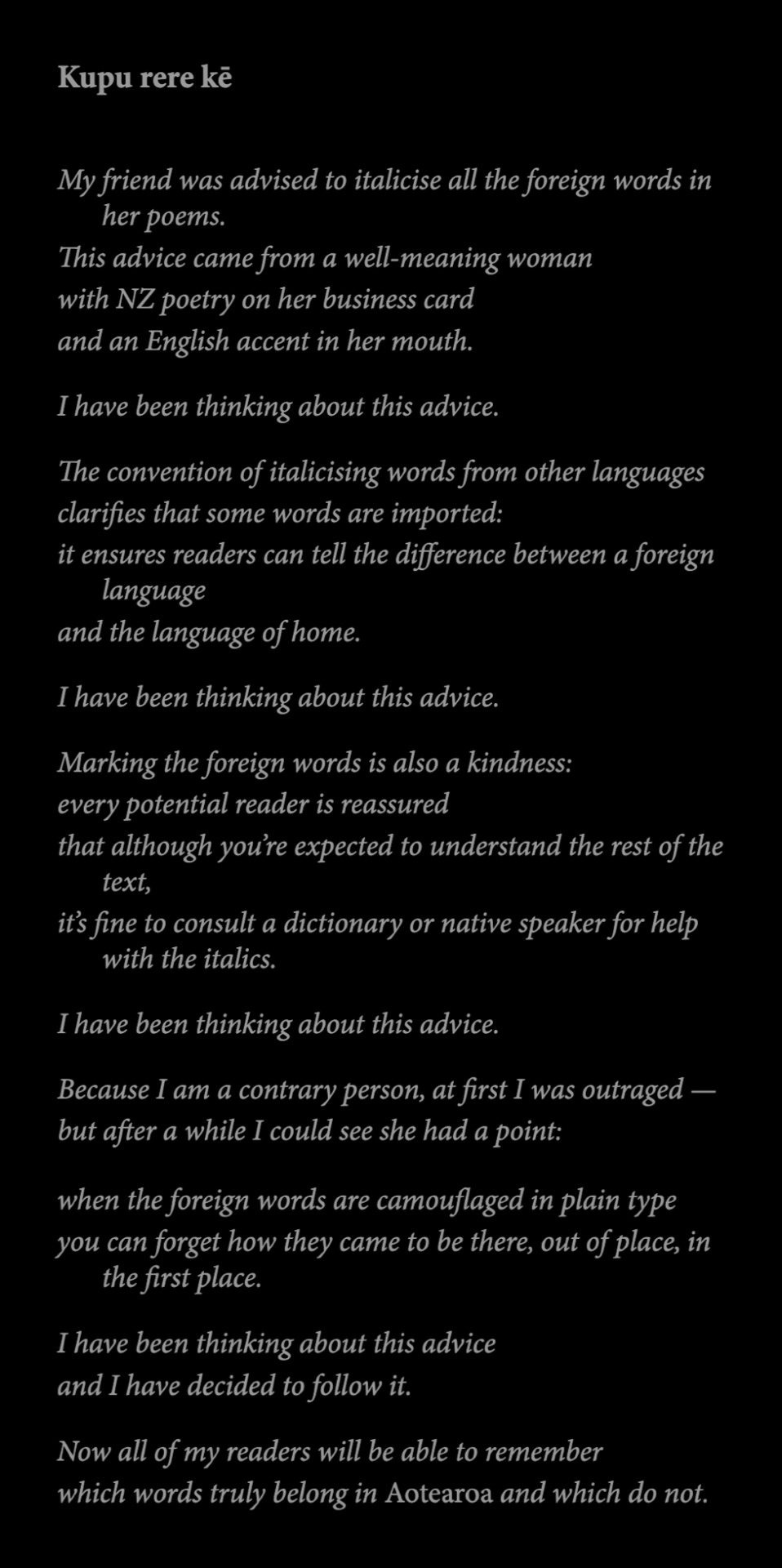
Alice Te Punga Somerville, Always Italicise: How to Write While Colonised - Kupu rere kē
[ID: A poem titled: Kupu rere kē. [in italics] My friend was advised to italicise all the foreign words in her poems. This advice came from a well-meaning woman with NZ poetry on her business card and an English accent in her mouth. I have been thinking about this advice. The convention of italicising words from other languages clarifies that some words are imported: it ensures readers can tell the difference between a foreign language and the language of home. I have been thinking about this advice. Marking the foreign words is also a kindness: every potential reader is reassured that although you're expected to understand the rest of the text, it's fine to consult a dictionary or native speaker for help with the italics. I have been thinking about this advice. Because I am a contrary person, at first I was outraged — but after a while I could see she had a point: when the foreign words are camouflaged in plain type you can forget how they came to be there, out of place, in the first place. I have been thinking about this advice and I have decided to follow it. Now all of my readers will be able to remember which words truly belong in -[end italics]- Aotearoa -[italics]- and which do not.
Next image is the futurama meme: to shreds you say...]
(Image ID by @bisexualshakespeare)

#powerful right off the bat#Alice Te Punga Somerville#Always Italicise#Always Italicise: How to Write While Colonised#new zealand poem#Always Italicise How to Write While Colonised#Kupu rere kē#aotearoa#quote#quotes#poem#poetry#Māori poetry#Māori#colonization#colonisation#Decolonisation#Te reo māori#Decolonization#new zealand#new zealand poetry
76K notes
·
View notes
Text
Poetry on Palestine
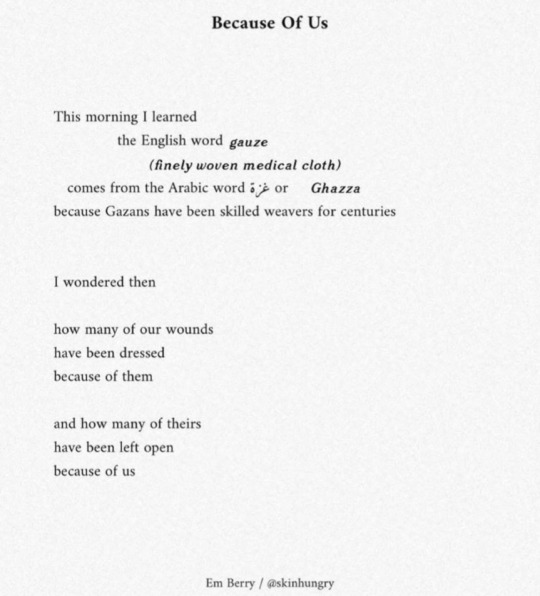
#Gaza as a centre of weaving in the region#Em Berry#free palestine#the author is from New Zealand#free gaza#palestinian genocide#palestinian art#palestine#stand with gaza#gazaunderattack#gaza#gaza genocide#gaza strip#pray for gaza#israel#palestinians#palestinian poetry#poems and quotes#poem#poetry#writers and poets#poetic#writing#words
5K notes
·
View notes
Text
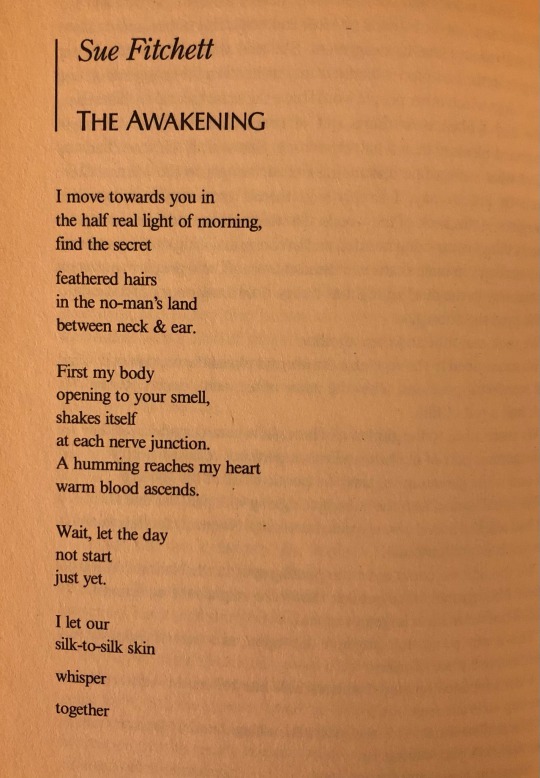
Source: The Exploding Frangipani ; Lesbian Writing From Australia and New Zealand -edited by Cathie Dunsford and Susan Hawthorne
#lesbian poem#lesbian poetry#lesbian writing#lesbian history#lgbt#image#lesbian#photo#personal#Australian lesbian history#New Zealand lesbian history
85 notes
·
View notes
Text
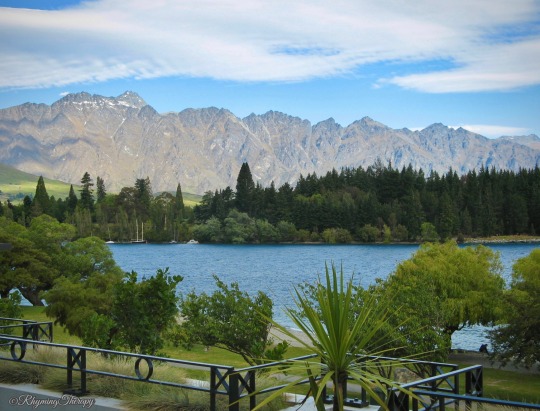
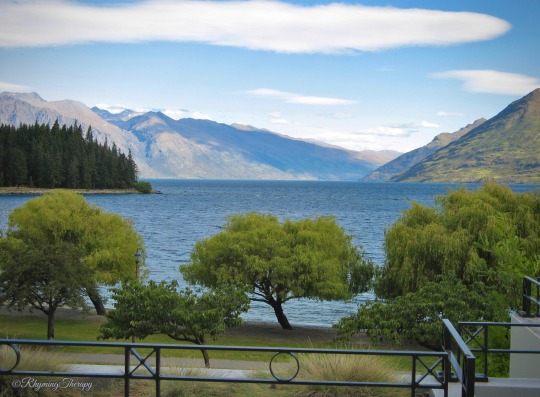
hear the wind—
whispering in sighs
of all the places she’s been
over water—
transparent as glass,
rippled beneath the silken
fluctuations of her breath
& through trees—
overwhelmed by the
power of her perseverance,
who yield all their lives in deference
RhymingTherapy—February 2023 (my photos Queenstown NZ)
#writerscreed#poeticstories#twcpoetry#poetryportal#photographers on tumblr#poets on tumblr#original photography#writers on tumblr#poetry#nature#landscape#water#trees#sky#mountains#queenstown#new zealand#wind
477 notes
·
View notes
Text

#powerful right off the bat#Alice Te Punga Somerville#Always Italicise#Always Italicise: How to Write While Colonised#new zealand poem#Always Italicise How to Write While Colonised#Kupu rere kē#aotearoa#quote#quotes#poem#poetry#Māori poetry#Māori#colonization#colonisation#Decolonisation#Te reo māori#Decolonization#new zealand#new zealand poetry
17 notes
·
View notes
Text


My book of poetry "Le Tournesol and other poems" is available to buy online from a number of different worldwide sites!
For Aotearoa New Zealand & Australia:
fishpond.co.nz
booktopia.com.au
amazon.com.au
Overseas:
- amazon.com
United States of America:
- walmart.com
- abebooks.com
- betterworldbooks.com
- thriftbooks.com
- penguinbookshop.com
Canada - indigo.ca
United Kingdom - alibris.co.uk
Brazil - amazon.com.br
Mexico - amazon.com.mx
Denmark - saxo.com
Sweden:
- adlibris.com
- bokus.com
- akademibokhandeln.se
South Africa - takealot.com
Japan - kinokuniya.co.jp
Korea - yes24.com
Taiwan - books.com.tw
SEARCH FOR OTHER STORES HERE
(let me know if you find it on any other website!!)
My website
My Poetry Twitter/X
#poetry#book#poetry book#self-published#poems#poet#Aotearoa#New Zealand#buy my book#Le Tournesol and other poems#Le Tournesol#Edwin Z. Canary#amazon#fishpond#booktopia#abebooks#alibris#adlibris#saxo#takealot#kinokuniya#betterworldbooks#thriftbooks#penguinbooks#bokus#akademibokhandeln#yes24#books.com.tw#indigo.ca
18 notes
·
View notes
Text
Dawn
yellow morning
through the cloud
everything is wet
the sun appears to drip
through the canopy
a n d
the breath can be seen
through the mist
light alights on life anew
a n d
lifts the veil of dawn
listen softly
f o r
nothing whispers
quite like this moment
Joel Lester // Hymns, Proverbs, Poems, and Prophecy.
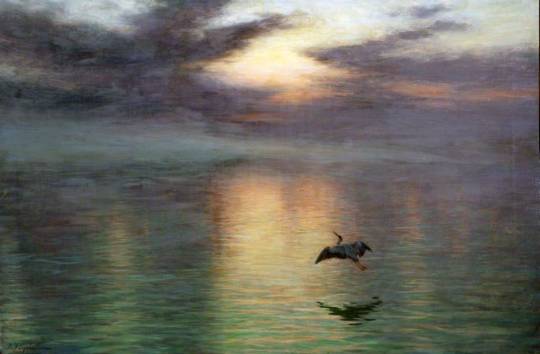
#poem#poetry#new zealand poetry#creative writing#writblr#writing#poems and poetry#writers and poets#poets on tumblr#dead poets society#original poem#spilled ink#spilled poetry#text#words#poetic
14 notes
·
View notes
Text
we are all the sum of what has been
and the memory of what shall follow
Phil Kawana, Songs for my children
#Phil Kawana#Songs for my children#Puna Wai Korero#memory#going forward#new year#New Year 2024#January#January quotes#Maori literature#Maori poetry#Indigenous literature#Indigenous poetry#New Zealand literature#poetry#poetry quotes#quotes#quotes blog#literary quotes#literature quotes#literature#book quotes#books#text#words
11 notes
·
View notes
Text
A poem by Andrew Johnston
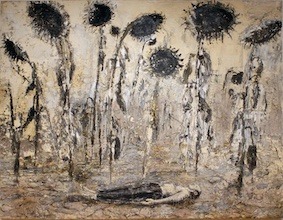
THE SUNFLOWER
for Stuart Johnston, 1931–2004
One young bloom in a vase or jar, breath-
takingly yellow. And her
hands, in the morning light, the way
they arrange and rearrange. Death
brings lilies, but someone has sent a sunflower:
this is our penance, staring at the sun,
its blind eye, its ragged halo. The day,
in the end, took to its bed
before the day was over, taking thee
with it. Soon this flower, too, will be dead,
its summer of wondering done
about the sun, petal by petal: loved me;
didn’t know how; did, unsayably so. It leaves me
as he left us, in the dark. From one breath
to the next, he’d deflect a question: in his the-
ology, I, me, mine were just not done.
Because he saw eye to eye with death
we can stare at the sunflower all day
but his heavenly father’s garden was further
than we were prepared to go—its bed
of blood-red roses, its promises, its premises, the way
everything had been arranged; ‘dead’
a manner of speaking, under the sun.
We counted ourselves lucky, hour by hour,
and by the minutes of the sunflower
(he doesn’t, he does, he doesn’t know me),
each in his or her own way worshipping the sun
and coming to other arrangements with death—
that it is the end, in the abstract. And then one day
someone calls, and you take a deep, deep breath.
Sister nor’wester, southerly brother—
into the mind of the man we guess our way,
blind and deaf, senseless, because he is dead.
From the end of the earth I will cry unto thee,
as daughters and sons have always done,
for words unsaid. The riverbed
was dry and I was thirsty. By your bed,
near the end, we could count our
blessings: each day,
for one thing, and though it was winter, the sun.
A sisterly sixth sense, when death
began to bloom, flew me
from the end of the earth. In a week you were dead
but we shadowed one another
through the brittle days before you went away.
You talked and talked, as you’d always done,
of all but you, till you were out of breath.
I would have liked to hear—despite your fear of the-
atre (so foolish was I, and ignorant, before thee)—
about your mother, for instance, who took to bed
when tempers rose; and how the sun
had burned a dead-
ly thirst into your father’s breath;
but the hard facts I craved, my mother
knew, were the same stones, day
after day, that you buried in death-
ly silence, so that in this inscrutable way
you could build—for you, for her, for six including me—
a house, a plain, safe house, with a sunflower
in the garden. ‘That which is done
is that which shall be done’
is all very well in the-
ory, but what if the sun
were black, and the book dead
wrong, and the interval under death
demanded a father
as unlike his father as day
and night? A breath
of wind reaches me
from the rose-bed;
in its vase or jar the sunflower
nods politely. Halfway
across the Channel, halfway
between waking and sleeping, my mind undone,
I had, as luck would have it, something of an inkling. The day
had been long; as I lay in the boat’s narrow bed
a wave of black joy lifted me and left in me
knowledge so dark it shone. I held my breath.
Fear fell away, of death, and other
fears; the end, in the end, was the darkest jewel. I was dead
tired, and fatigue’s mysterious flower
spoke perhaps in tongues. But that black sun
still shines—a talisman, obsidian, a bright antithe-
sis. Its darkness made light of death
at most, however, for me; the death
of someone else is something else. Your way
led over the border; I am a stranger with thee,
and a sojourner, but wherever I am, my place in the sun
you prepared. His earthly power
spent, your god, to us, is dead,
but it was your belief that gave us breath,
the life we take for granted every day.
What sense of your sense will I take with me?
How much of your world will we hand on?
Just before the end, on the wall beside your bed,
Peter pinned Leonardo’s St. Anne. Her
smile, wry, reminds me of you, and her
hand-on-hip benevolence. Wherever death
leads, we can meet here. The power
of light in van Eyck and Vermeer. The breath
of Wallace Stevens, overhearing his way
to work. Every Henry James you read in bed,
destiny and destiny like night and day.
The valedictory music of ‘The Dead’.
Thou hast set our iniquities before thee
but when all—or almost all—is said and done
sometimes it seemed you believed no less than me
that when we die we go into the sun.
There is nothing new under the sun
but much of it is mystery: this my mother knows. Her
psychological eye revised your the-
ological line. They’d converge, anyway,
at the library—your rain-cloud, your seed-bed.
You read and read and read. And saved your breath
not to write yourself, but to make each day
bloom and turn. The astonishing flower,
head full of edible seeds, bows down dead:
this is the credible sense of its death,
that here, where its turning is done
other journeys begin. It seems to me
you believed what you believed, but it strikes me,
too, that the seeds you sowed, in the mind’s sun,
mattered most. (Sometimes they grew a bed
of nails: you were often ‘sick to death’
of fads and feuds, the way
they shut out the sun.) Flower
of wonder, flower of might: if I see thee
on the other side, when I am dead,
I’ll know there is an other
side. Till then, while we have breath,
our burgeoning work is not done:
what we have been given is a rich, difficult day
that could go on without us, nevertheless, all day,
whistling a cryptic tune. It comes to me
in the conservatory, where we catch a little sun:
I didn’t know you well, and then you went away
but in the day of my trouble I will call upon thee
because you were a man to get things done.
In its vase or jar, the young sunflower
I imagine has served its purpose. Beneath its bed,
all along, the river was flowing—deep, where death
knows more than we. Sylvia dons her
gardening gloves to gather the dead
roses. Man cannot utter it, but under his breath:
‘Remember me, my loves, when I am dead.’
Rest on memory’s sea-bed: we will swim down to thee.
And in our own blue day, we will gaze at death
the way this one young bloom would gaze at the sun.
In the garden of the living, my mother stops for breath.
Thou thy worldly task hast done. And seeds rain from the sunflower.

Andrew Johnston
Andrew Johnston comments on his poem: “The Sunflower ” is woven from many strands. In 1991 I read John Ashbery’s book-length poem “Flow Chart” and was struck by the double sestina embedded in it (pp. 186-193), which borrows its end-words (among them, “sunflower”) from a poem by Swinburne. In January 1997, newly arrived in the depths of a London winter, I was bowled over by an exhibition of Anselm Kiefer’s sunflower paintings. When my father died in 2004, my brother Peter suggested two passages from the King James Bible for the funeral service; their language stayed with me. I spent November 2005 at a writer’s residence in the north of France. On a trip back to Paris one weekend, I had a revelation in the train: I could use the double-sestina structure, and even Ashbery’s (and Swinburne’s) end-words, plus bits of the King James psalms and Kiefer’s sunflower image, to write the poem I needed to write about my father (there are echoes of many other sources in there, too). I went back to the Villa Mont-Noir and wrote “The Sunflower”.
Image: The Orders of the Night (Die Orden der Nacht), 1996, Photograph: Seattle Art Museum /Anselm Kiefer
2 notes
·
View notes
Text
No Ordinary Sun - Hone Tūwhare - Aotearoa (New Zealand)
Tree let your arms fall:
raise them not sharply in supplication
to the bright enhaloed cloud.
Let your arms lack toughness and
resilience for this is no mere axe
to blunt nor fire to smother.
Your sap shall not rise again
to the moon’s pull.
No more incline a deferential head
to the wind’s talk, or stir
to the tickle of coursing rain.
Your former shagginess shall not be
wreathed with the delightful flight
of birds nor shield
nor cool the ardour of unheeding
lovers from the monstrous sun.
Tree let your naked arms fall
nor extend vain entreaties to the radiant ball.
This is no gallant monsoon’s flash,
no dashing trade wind’s blast.
The fading green of your magic
emanations shall not make pure again
these polluted skies . . . for this
is no ordinary sun.
O tree
in the shadowless mountains
the white plains and
the drab sea floor
your end at last is written.
14 notes
·
View notes
Text
Rakiura - Stewart Island
This island is my anchor
Where trees echo the stories of the land
And rangers laugh and dance and sing
Unleashing the wild child within.
This island is my anchor
Where I will sing with friends until
the fires burn out
And the sky grows dark
Then the eyes of the universe
Will illuminate the path
Guiding the way for tired girls
Safely back to their cabins
And to their beds where
They will rest their tired bones
Prepared for another day.
#rakiura#stewart island#new zealand#girl guides#camping#guide camp#camp#memories#anchor#night#poems and poetry#original poem#poem
3 notes
·
View notes